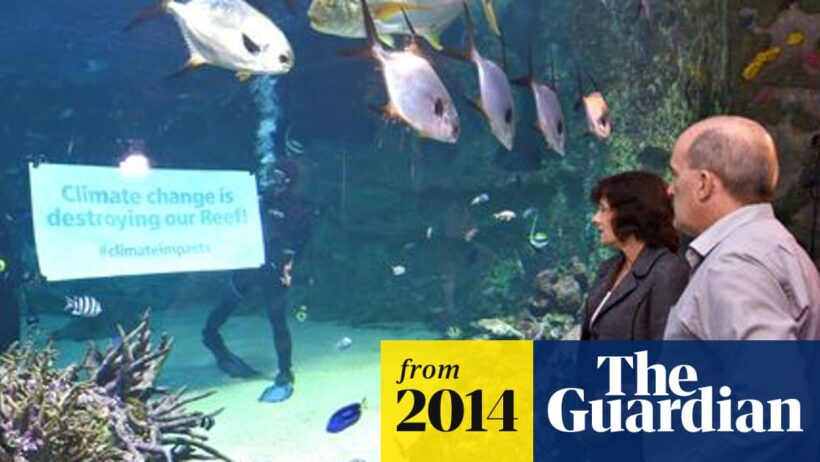The Urgency of Now: What Will Happen If We Don’t Stop Climate Change?
Imagine waking up one day to find that your neighborhood has transformed into an inhospitable environment, where the air is thick with pollutants and the once-clear blue skies are cloaked in an ominous haze. How would that reality affect you, your loved ones, and future generations? This hypothetical scenario is swiftly becoming a tangible threat if we do not actively combat climate change. The clock is ticking, and the urgency for immediate action cannot be overstated.
Climate change, driven primarily by human activities such as burning fossil fuels, deforestation, and industrial emissions, is no longer a distant concern. It is an existential threat that poses numerous challenges to our planet and society as a whole. If we fail to curb greenhouse gas emissions and implement sustainable practices, we will face catastrophic consequences that are both wide-ranging and severe.
Rising Temperatures and Extreme Weather Events
One of the most immediate manifestations of climate change is the increase in global temperatures. With each passing year, we witness more frequent and intense heatwaves, droughts, floods, and storms. The warming of the planet has disrupted established weather patterns, leading to unpredictable climatic conditions. For example, the frequency of hurricanes has escalated, resulting in unprecedented destruction and economic loss. If current trends continue, it is projected that by 2100, global temperatures could rise by as much as 3 to 5 degrees Celsius, leading to drastic alterations in our agricultural cycles and water resources.
Threats to Biodiversity and Ecosystems
The repercussions of climate change extend beyond human society; they also jeopardize our planet’s ecosystems. As temperatures rise, many species find their habitats becoming uninhabitable. Coral reefs, often referred to as the “rainforests of the sea,” are particularly vulnerable to temperature fluctuations and ocean acidification. The loss of biodiversity has far-reaching implications, disrupting food chains and diminishing the resilience of ecosystems. If global warming continues unchecked, scientists warn that up to one million species could face extinction by the end of this century, further destabilizing the intricate balance of life on Earth.
Impact on Agriculture and Food Security
In addition to harming natural habitats, climate change threatens global food security. Fluctuations in weather patterns lead to crop failures, while droughts diminish water availability for irrigation. The agricultural sector, which feeds billions, is particularly sensitive to changing climate conditions. For example, staple crops such as wheat, rice, and maize are projected to see decreased yields, endangering food supplies and increasing prices. The question is not merely “What will happen to food security?” but rather “Who will suffer the most from this crisis?” Vulnerable communities, often in developing regions, will bear the brunt of these changes, exacerbating poverty and inequality.
Human Health Risks
Climate change also presents a public health crisis that is often overlooked. Rising temperatures contribute to the proliferation of vector-borne diseases such as malaria and dengue fever. The worsening air quality, exacerbated by rising heat, increases respiratory illnesses, particularly among the elderly and children. Water scarcity and the emergence of pathogens further complicate health outcomes. As communities struggle with these rising health risks, the global healthcare system will become increasingly strained, requiring urgent and robust responses.
Economic Consequences
The financial ramifications of inaction on climate change are staggering. Natural disasters fueled by climate change lead to costly recovery efforts, insurance claims, and loss of infrastructure. Estimates suggest that climate-related events could cost the global economy several trillion dollars by 2050. This economic burden will likely disproportionately affect developing nations, stymieing their growth and development prospects. The conundrum is clear: what will happen if we choose to ignore the economic implications of climate change? A scenario where financial stability crumbles under the weight of environmental neglect is fast approaching.
Social and Political Instability
Perhaps one of the most alarming outcomes of unmanaged climate change is the potential for social and political unrest. As resources become scarce, competition for water, food, and habitable land will intensify, leading to conflicts within and between nations. Displacement caused by rising sea levels and extreme weather events may create millions of climate refugees, stretching already fragile political systems to their limits. The interplay between environmental degradation and social stability raises the pressing question: what will happen when communities are pushed to their breaking point?
The Time for Action is Now
The myriad consequences of climate change paint a grim picture for the future if we do not take action. The question of “What will happen if we don’t stop climate change?” has never been more urgent. The time to act is not only imperative; it is a moral obligation. Collective action—through policy changes, innovative technologies, and lifestyle adjustments—must be embraced to mitigate the impacts of climate change. Demonstrating environmental resilience today ensures a promising future for generations to come.
As we move forward, let us challenge ourselves to rethink our relationship with the planet. While the challenges posed by climate change may seem daunting, they also present an opportunity to forge a more sustainable and equitable world. In this critical juncture, we have the power to make meaningful changes. The urgency is now; the future of our planet depends on it.







